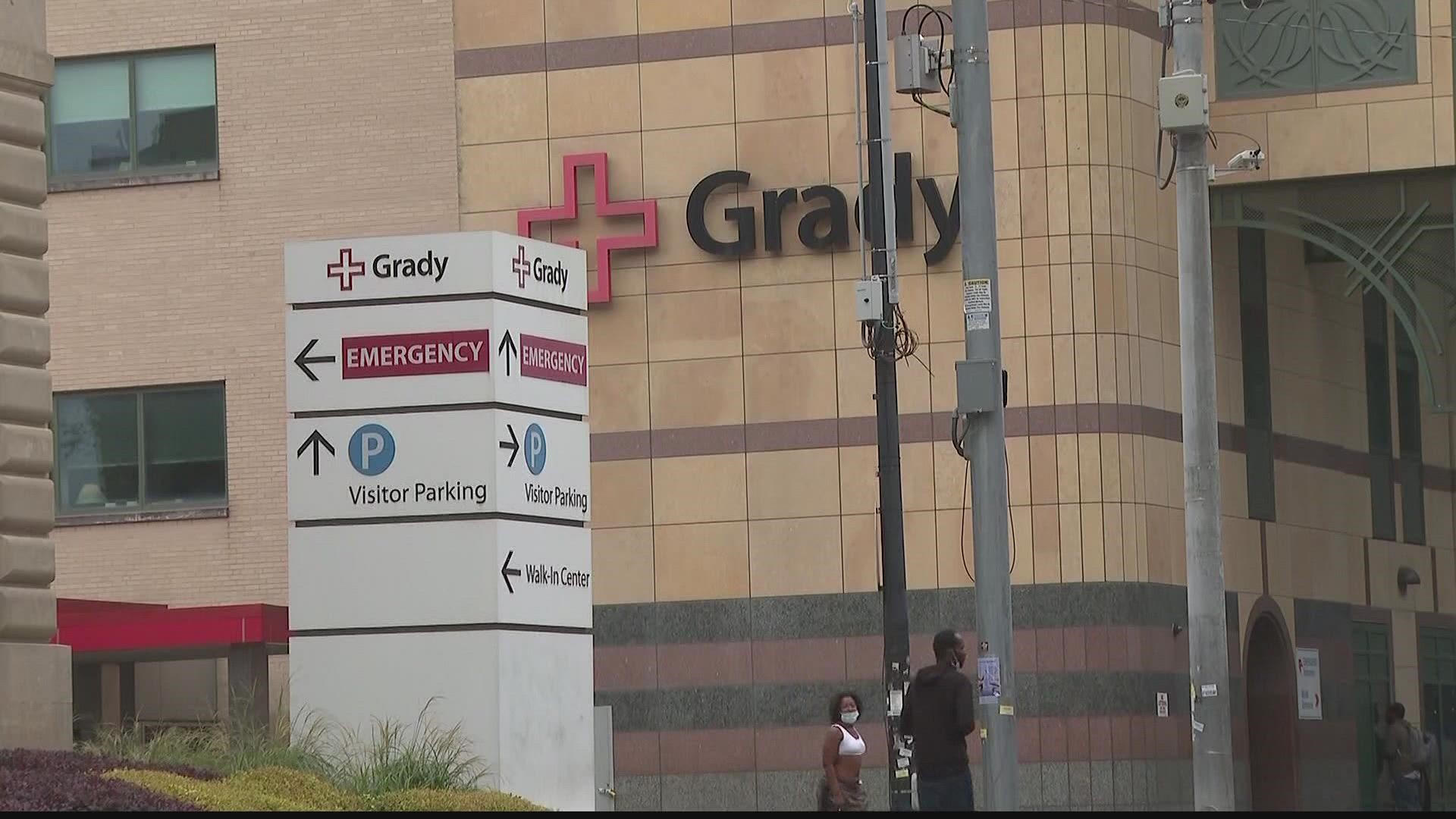ATLANTA — When Atlanta Medical Center closes its doors, the metro area will be losing not only an emergency room in the heart of the city, but one of only two level 1 trauma centers.
The second such trauma center in the Atlanta area is at Grady -- less than two miles away from AMC.
"A lot of that volume from AMC, 55,000 visits a year is going to end up in the ER here, the ER at Midtown Emory, the ER at Piedmont Atlanta, and add to already strained capacity at the ERs citywide," said Grady Health System CEO and President John Haupert.
He predicts when AMC closes on November 1, emergency room wait times will increase, especially for lower-level issues. Such issues could include people visiting an ER for flu symptoms, a possible cold, or needing some sort of medical test.
Ideally, such patients would go to a primary care doctor or urgent care, but Haupert said too often they head to an ER instead for various reasons.
"Particularly those individuals that are uninsured may not have an option of a primary care practice. But we do in this country, in general, have a lot of what I would term inappropriate use of emergency departments for doctors visits that are really better off in a primary care office," Haupert said.
As level 1 trauma centers, by definition according to the American Trauma Society, Grady and AMC are looked to as regional resources for comprehensive trauma care. They are a capable of providing care for every aspect of a traumatic injury and can provide 24-hour in-house general surgeons from a wide range of specialties. That includes emergency medicine and critical care. They can also incorporate teaching and research to improve trauma care.
Outside of Atlanta, there are only three other level 1 trauma centers in Georgia, which are located in Macon, Savannah, and Augusta.
"Of course, one less is more intensity for the others but from what I'm able to assess there is the capacity to absorb that market-wide," Haupert said.
He added that thankfully he believes Grady is currently equipped and staffed to take care of its current trauma patients and able to also care for trauma patients who in the past would have headed to AMC.
Trauma patients can include a wide range of injuries from gunshot wounds to injuries from a serious auto accident, burns from a fire, traumatic brain injury, or other serious issues requiring an immediate higher level of care.
"I think that is important for the public to understand because they need to be reassured that this will not disrupt the trauma program, the burn program, the stroke program, the truly emergent services the community has come to rely on us for," Haupert said.

